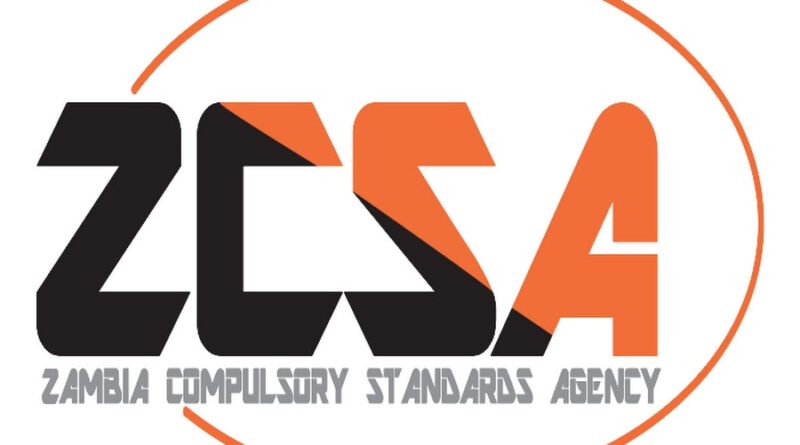Rules for Safer Products
 Mandatory standards strengthen oversight, regulate key products, and build consumer trust
Mandatory standards strengthen oversight, regulate key products, and build consumer trustBy Lusaka, Zambia24 - (August 6, 2025) - The Zambian government has reaffirmed its commitment to enhancing public health, safety, consumer and environmental protection by declaring additional 41 Zambian standards as compulsory standards.
This now brings the total number of products covered by compulsory standards to 102, from the previous number 61.
On May 9, 2025, the Minister of Commerce, Trade and Industry Chipoka Mulenga issued a Statutory Instrument (SI) No. 20 of 2025 which declared 41 new compulsory standards covering packaging materials, solar products, fish and fish products, more fertilizers, table wines, energy drinks and milk and tomato products, among other products.
Zambia Compulsory Standards Agency (ZCSA) Manager – Communications and Public Relations, Brian Hatyoka, said the new mandatory standards will be enforced alongside existing standards before the end of the third quarter of 2025.
This is in bid to protect consumers and the environment from substandard and potentially unsafe products on the Zambian market.
Mr Hatyoka said the Agency is currently finalising preparations for full enforcement of new mandatory standards.
A wide range of products crucial to citizens’ well-being and the country’s sustainable development covering imported and locally manufactured commodities fall under compulsory standards.
Compulsory Standards contain mandatory specifications or minimum requirements that products must meet before they are supplied on the market.
Manufacturers of goods must ensure they follow a standard relating to their product of choice before it is introduced on the market to prevent or reduce the risk of injury or harm to a person or the environment.
Section 11 (1) of the Compulsory Standards Act Number 3 of 2017 states that the Minister, Statutory Instrument, on the recommendation of the ZCSA Board, where it is necessary or expedient to do so in respect of a commodity or service to promote public safety, health, consumer and environmental protection –
(a) Declare a Zambian National Standard or a provision of a Zambian National Standard to be a compulsory standard;
(b) Publish any specification or code of practice established in relation to an export commodity;
(c) Declare any specification or code of practice established in relation to an export commodity to be a compulsory export standard; or
(d) Withdraw a compulsory standard.
Mr Hatyoka said it is a legal requirement for any producer or importer of goods or products subjected to compulsory standards to comply with the law.
He added that the Compulsory Standards Act No. 3 of 2017 clearly stipulates what manufacturers should do before making a product subjected to Compulsory Standards and the punitive action which should be taken against an importer or manufacturer who does not comply with the Act.
Section 16 (4) (b) of the Act mandates ZCSA to seize, destroy or re-work non-compliant products covered by mandatory standards in a bid to protect consumers and the environment.
Last week on Monday, ZCSA published a full list of 312 compliant companies with valid permits as of June 30, 2025.
The list covers all 10 provinces of Zambia and includes various establishments that produce, import, or supply food products, beverages, chemicals, household electrical appliances, similar consumer goods, used motor vehicles, fuels, fertilizers, cement, animal feed, and used textile products, among others.



Comments
Post a Comment